Neuroscientist’s grave warning about Australia’s newest combat sport sweeping the country
Leading sports neuroscientist Dr Alan Pearce has issued a grave warning to Aussies as a new combat sport makes waves across the country.
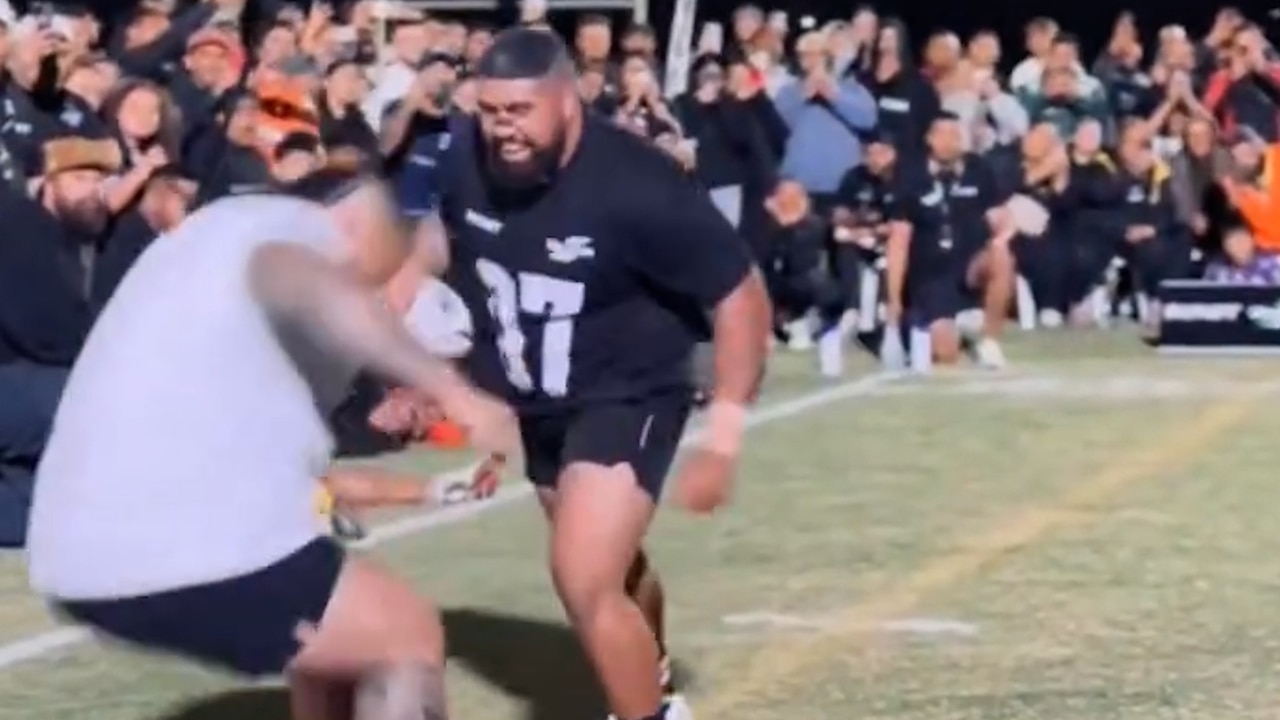
If you grew up playing or watching rugby league the term ‘run it straight’ won’t be anything new to you.
Ingrained in Australian culture is the notion of being tough and fearless, hence why ‘run it straight’, which refers to charging at full speed at another person who will attempt to tackle you, is something often muttered from school playgrounds to sports fields.
For years the ‘run it straight’ trend has sporadically gone viral on social media platforms.
But the ‘challenge’ has been fairly controversial due to the violent nature of some of the tackles, which by the rugby league textbook would see a player sent off and receive a several-week ban.
Watch the biggest Aussie sports & the best from overseas LIVE on Kayo Sports | New to Kayo? Get your first month for just $1. Limited time offer.
However, in recent months two groups known as ‘Run it Straight Official’ and ‘RUNIT Championship League’ have turned the trend into a business, with the latter taking it a step further by holding an inaugural competition on Wednesday with $4000 going to the winner.
But while on the surface it all might seem like all fun and laughs, leading Australian sports neuroscientist Dr Alan Pearce found it almightily troubling, telling news.com.au that participants need to understand they are likely shortening their lives every time they ‘run it straight’.
“I was pretty gobsmacked, speechless actually when I saw this competition idea starting because for me as someone who has seen hundreds of footballers and rugby league players who are now struggling with brain injury and long-term impairment it is really troubling,” Dr Pearce told news.com.au.
You can watch the ‘run it straight’ challenge in the player above.
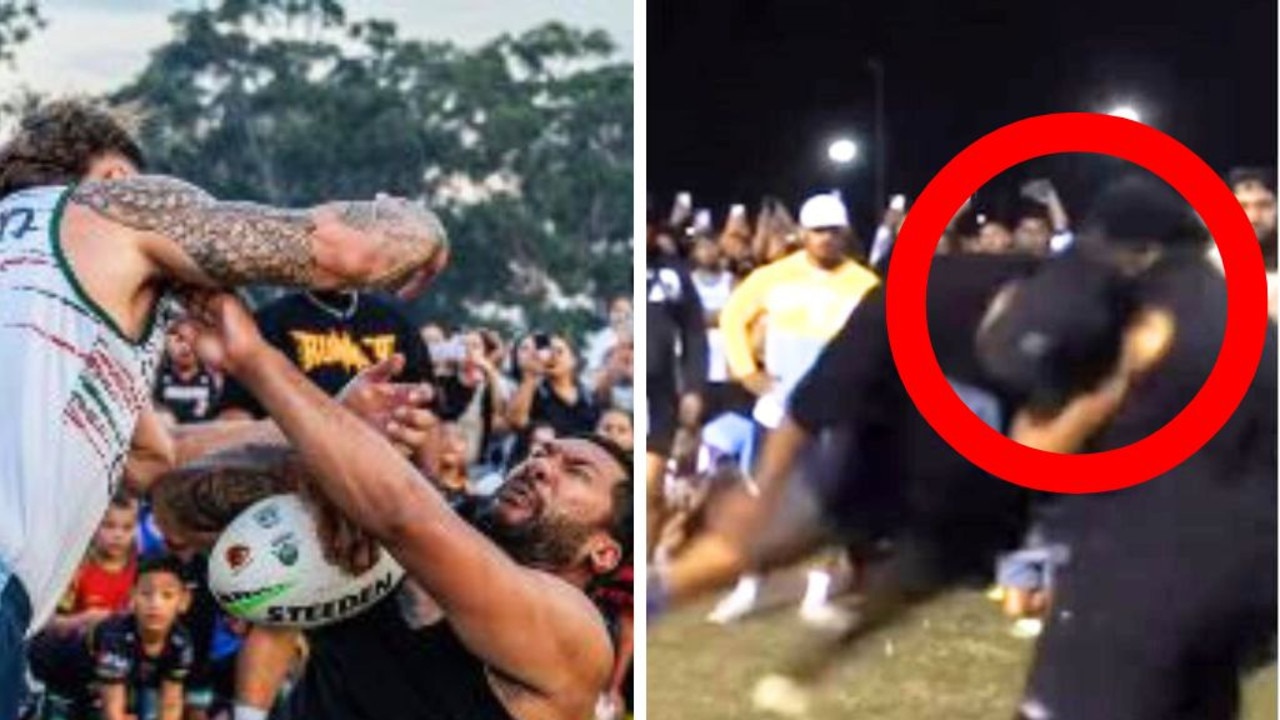
“I just cannot understand how they could take the most violent aspect of sport and just turn it into a spectacle where the objective is just to try and knock out or hurt your opponent.
“In a lot of these other sports (such as NRL, AFL and rugby union) you’re trying to avoid direct contact whereas this is purely running at each other, it’s insanity.”
The sport involves four rounds of players charging at each other along a 10m grass runway, with each competitor taking turns carrying a rugby league ball.
The objective is to either successfully tackle the opponent or run them over in a hard-hitting collision.
The contest is ended when a player is knocked out or concussed.
If both competitors are still standing and have their wits about them after four rounds, a set of judges decide the winner, with the main criteria they are judging being damage.

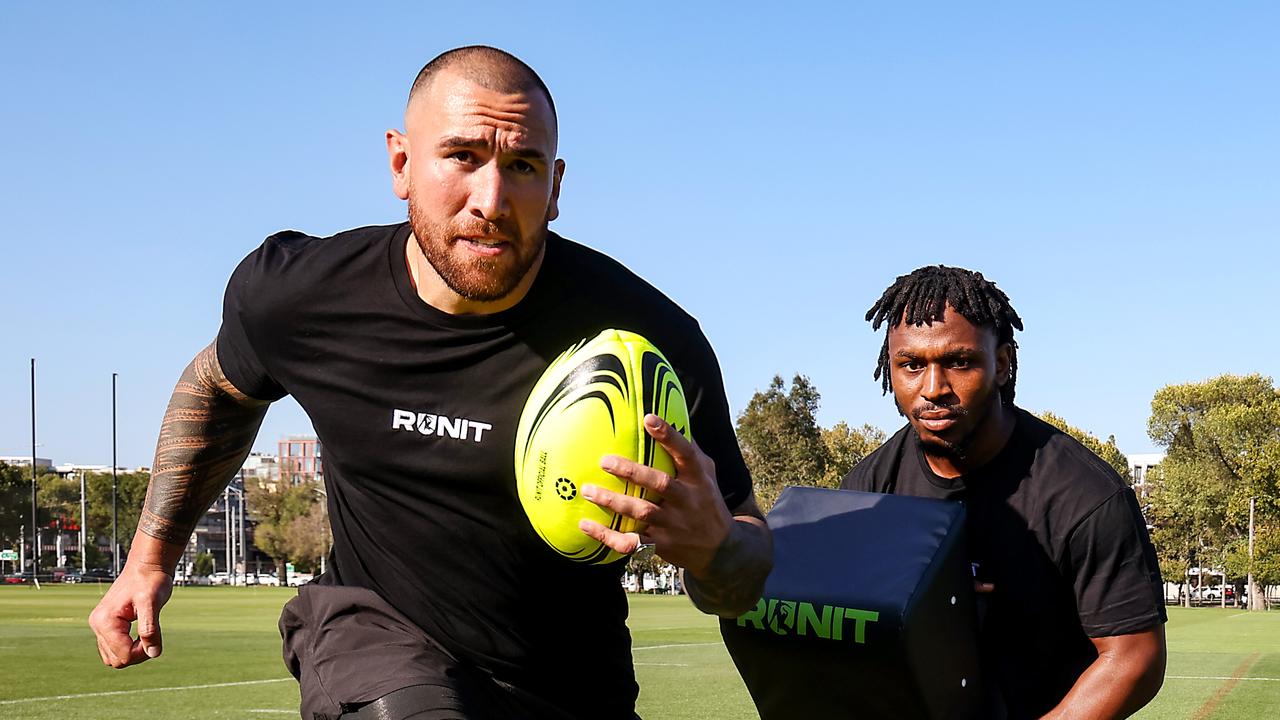
So it begs the question, why would people want to compete in a sport that puts not only your body on the line but your brain health?
Dr Pearce hypothesised it may be down to the growing belief that traditional contact sports have ‘gone soft’, a notion he believes has been incorrectly peddled for years.
“A lot of these people competing have a footy background and if anything it’s worse as they have already likely had several head knocks which add up a lot quicker than people realise,” Dr Pearce said.
“Then there’s the idea that (contact) sport is getting soft. But that’s incorrect, it is actually getting far harder as the athletes are now bigger, stronger and faster than ever before, just look at the injury lists every week.
“We are seeing at all levels of the game higher injury rates but yet people are still complaining that sports are getting soft because we’re trying to crack down on things that are causing damage to our brains and bodies.
“So to them, I’d say you look at the evidence first before making comments around the game getting soft. We’re just basically trying to be more responsible in looking after our athletes as they are not just commodities.”
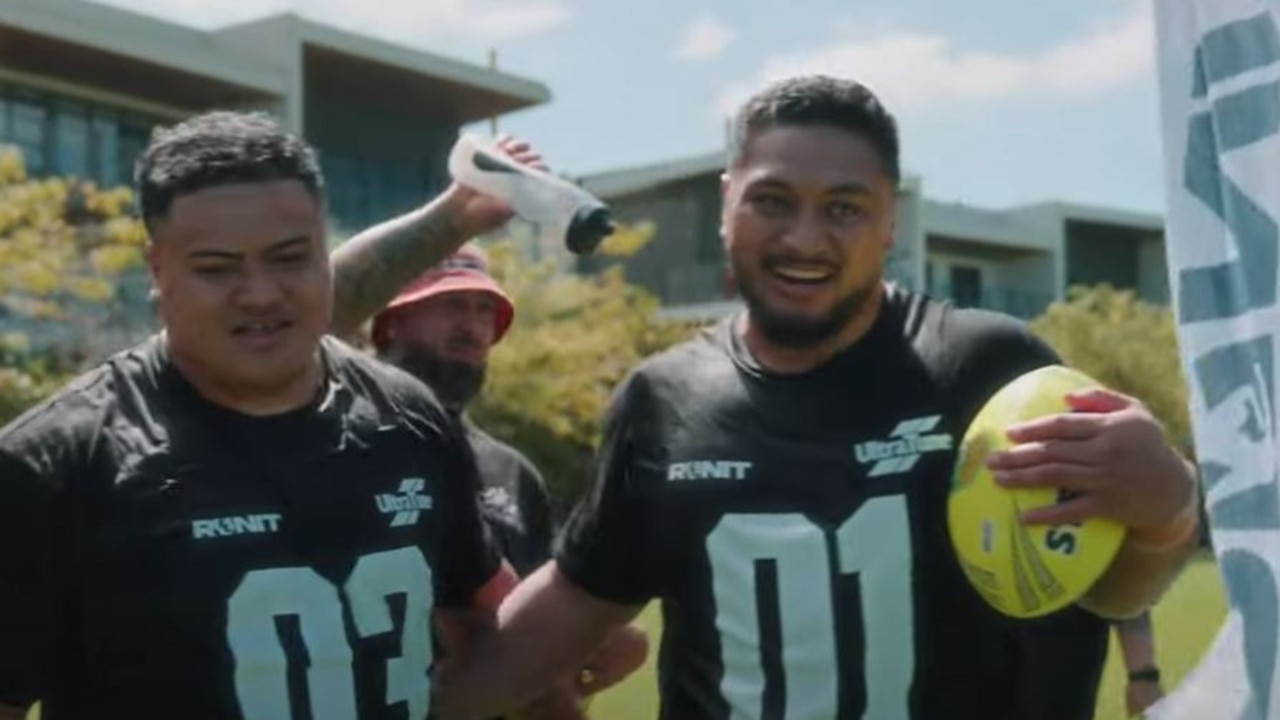
RUNIT states, unlike most ‘run-it-straight’ challenges, they have a set of strict rules, with medical staff waiting to assess players before and after each hit in a bid to combat head injuries and promote safety.
But with damage the end goal it is a difficult proposition to achieve.
Promoting the new league, Melbourne Storm enforcer Nelson Asofa Solomona says in a YouTube clip: “Welcome to RUNIT, this is where we separate the strong from the stronger”.
“If you’re running the job is simple, you run it straight. So how do you win? You win by dominating contact,” Asofa-Solomona continues.
“Hit hard, stand your ground and inflict damage … This is a sport built for warriors with the mental game, technique and strength to step up and run it.”
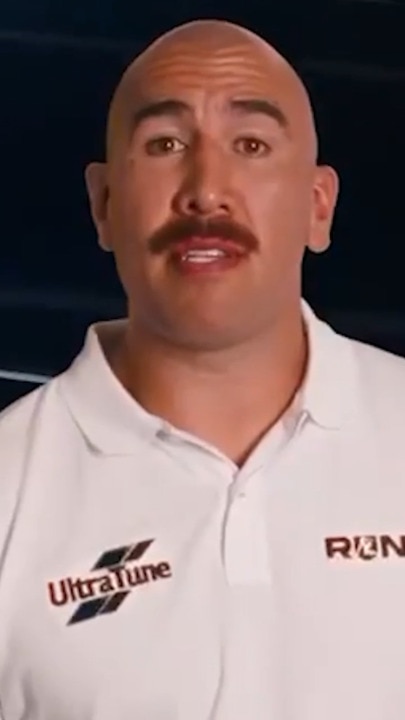
RUNIT believe they can become the next UFC
RUNIT believe they are onto the next big thing and are confident the sport can one day rival the UFC.
Co-founders Rennie Molimau and Virgil Tauaa say they had modelled the league off the success of the World Arm Wrestling League and Power Slap and believe it is destined to succeed.
“Fans should expect a jam-packed, action-packed night, it’ll be one to remember,” Molimau told the Herald Sun.
Mr Tauaa said he, like many other pacific islanders, had grown up doing the ‘run-it-straight’ challenge and when the idea was pitched to turn it into a league, he knew they were onto something big.
“It’s a test of strength, but ego and pride do come into it … otherwise it’s just a fun game to play,” he said.
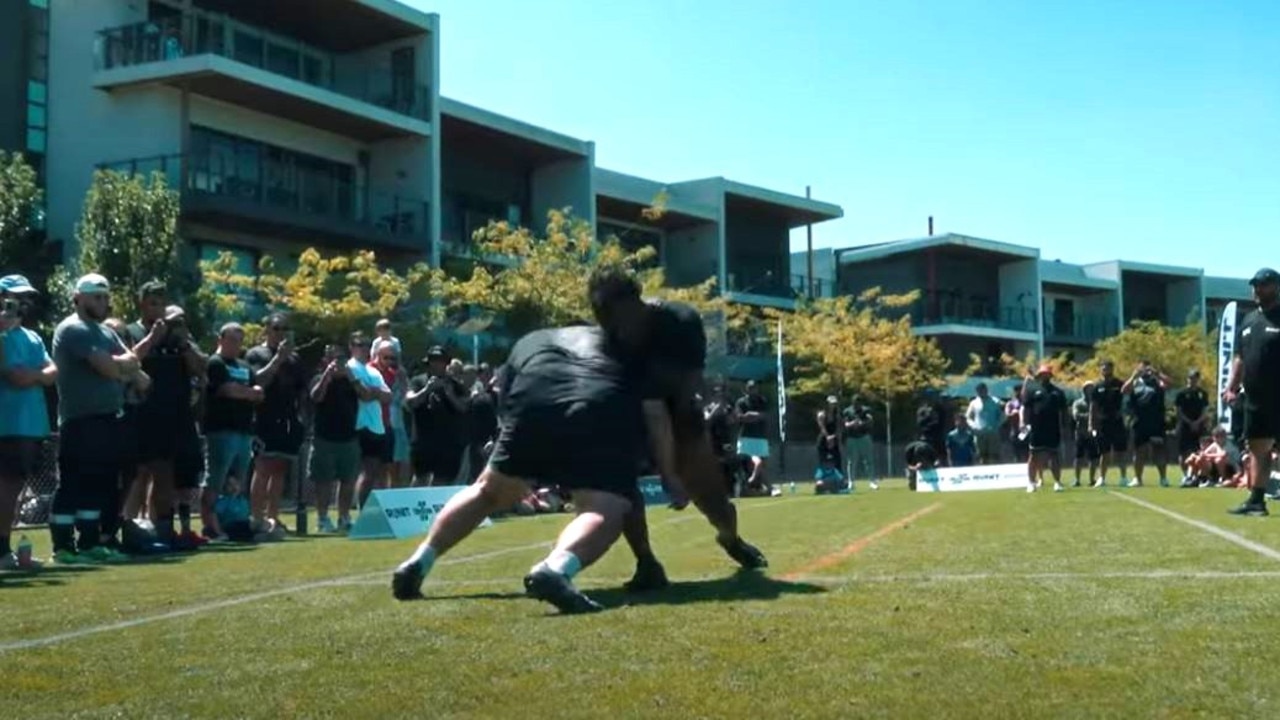
“We played it as kids growing up, now fast forward all these years, people’s attention span is decreasing and some people find it harder to sit through an 80-minute game of rugby league.
“Fans come for the big collisions and big runs.”
AFL and NRL stars including Western Bulldogs forward Jamarra Ugle-Hagan and former NRL hard man George Burgess have labelled it “much watch” sport and to celebrate the launch.
Burgess will go head-to-head with former Fijian Super Rugby star Nemani Nadolo in an exhibition run it straight prior to the competition’s final on Wednesday.
After the Melbourne competition this week it will then head to New Zealand on May 25, before going to the United States, Saudi Arabia and England later in the year.






